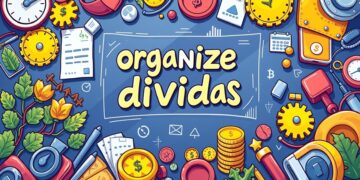
Couples Debt Management: How to Align Finances and Get Out of the Red
Effective debt management as a couple relies on open communication and shared financial goals. By creating a joint budget and regularly reviewing progress, couples can foster teamwork, assign financial responsibilities based on strengths, and build an emergency fund, ultimately strengthening their partnership while navigating financial challenges together.

How a debt settlement agreement works and when to accept it
This article explores debt settlement agreements, detailing how they work and when to consider accepting one. It highlights negotiation strategies, potential impacts on credit scores, and factors influencing the decision. Understanding these elements can guide individuals toward better financial stability amidst overwhelming debt challenges.

Advantages and disadvantages of debt portability
Debt portability allows borrowers to transfer existing debts to benefit from lower interest rates and improved terms. While it offers financial relief through consolidation and tailored financing, potential downsides include fees, market risks, and emotional stress. Careful evaluation is essential for making informed financial decisions.

How to Organize Your Debts Using Free Digital Tools
Managing multiple debts can be overwhelming, but free digital tools can simplify the process. By using these tools to organize, track payments, and develop tailored repayment strategies, individuals can regain control over their financial situations, avoid late fees, and work towards debt-free living more effectively.

Techniques to Reduce Financial Stress Caused by Debt
Debt can significantly impact emotional well-being and cause stress. This article explores practical strategies to manage debt, including creating a budget, debt consolidation, seeking professional advice, and cultivating mindful spending habits. By implementing these techniques, individuals can regain control of their finances and reduce financial anxiety.

How to Create an Accelerated Payment Plan to Get Out of Debt
Discover a structured approach to managing debt with an accelerated payment plan. Learn effective strategies to reduce repayment timelines, save on interest, and regain financial freedom. By identifying debts, creating a budget, and selecting a suitable payment method, you can achieve your goal of a debt-free life.

Credit card for those with low scores: is it possible to get one?
Individuals with low credit scores can still access credit cards tailored to their needs, such as secured cards, subprime cards, and offerings from credit unions. By utilizing these options responsibly, users can rebuild their credit scores over time, paving the way for better financial opportunities in the future.

How to avoid hidden fees when using a credit card
Credit cards can come with unexpected fees that impact your finances. By understanding common charges like annual and foreign transaction fees, and employing strategies such as reading the fine print and setting payment reminders, you can avoid these hidden costs and make the most of your credit card benefits.

How credit scoring works and its relationship with credit cards
This article explains the essentials of credit scoring and its critical relationship with credit cards. It highlights key factors influencing credit scores, details the impact of responsible credit card usage, and emphasizes the importance of monitoring your credit to achieve financial stability and better loan terms.

How to Increase Your Credit Card Limit Responsibly
This article explores how to responsibly increase your credit card limit. It emphasizes understanding your financial situation, maintaining a positive credit history, and strategically managing the request process. By approaching credit limits thoughtfully and using them wisely, you can enhance your financial flexibility while ensuring stability.